Corner Store est un film américain de genre Drame
Corner Store (2010)
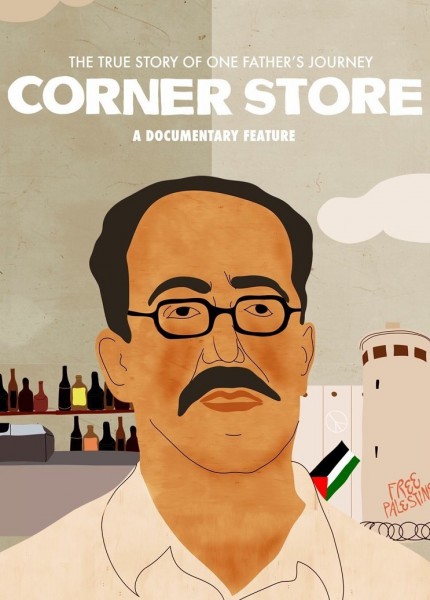
Si vous aimez ce film, faites-le savoir !
Durée 1h33
OrigineEtats-Unis
Themes Afrique post-coloniale, Religion, Documentaire sur le monde des affaires, Documentaire sur le droit, Documentaire sur la guerre, Documentaire historique, Documentaire sur une personnalité, Documentaire sur la politique, Documentaire sur la religion, Politique, Religion juive
Note67%










Corner Store (2010) is a documentary film about Yousef, an owner of a corner grocery store in San Francisco, produced and directed by Katherine Bruens and Sean Gillane, acting as both cinematographer and co-writer. Filming began in December 2009.
Yousef Elhaj, an owner of a corner grocery store in San Francisco is the focus of Corner Store. The film is structured as a first-person narrative with an informal and intimate tone, and shot largely as cinema vérité. The camera introduces the audience to Yousef, who left Palestine ten years ago during the Second Intifada, and was forced to leave his wife and children behind as an economic refugee.
[...]Voir plus...
Commentaires
Postez un commentaire :
Suggestions de films similaires à Corner Store
Il y a 69756 ayant les mêmes genres cinématographiques (dont 1041 ayant exactement les mêmes 2 genres que Corner Store), 13663 films qui ont les mêmes thèmes (dont 2 films qui ont les mêmes 11 thèmes que Corner Store), pour avoir au final 70 suggestions de films similaires.Si vous avez aimé Corner Store, vous aimerez sûrement les films similaires suivants :

海と夕陽と彼女の涙 ストロベリーフィールズ (2006)
, 1hOrigine Israel
Genres Drame, Documentaire, Fantasy
Thèmes Afrique post-coloniale, L'environnement, Religion, Documentaire sur le monde des affaires, Documentaire sur le droit, Documentaire sur l'environnement, Documentaire sur la guerre, Documentaire historique, Documentaire sur une personnalité, Documentaire sur la politique, Documentaire sur la religion, Politique, Religion juive
Acteurs Mitsuki Tanimura, Yuria Haga
Note64%





Strawberry Fields points out that strawberries grown in Gaza are the only agricultural product marketed internationally as being of Palestinian origin. One of the major Gaza strawberry farms in located at Beit Lahiya. More than 1,500 tons of strawberries are exported from Gaza to Europe through the Israeli company Agrexco. In order to get overseas, however, the fruits need to pass through the checkpoint that separates Israel and Gaza. The 2005–2006 growing season coincided with the Israel's disengagement from Gaza and the rise of Hamas as the ruling political entity.
[...]Voir plus...
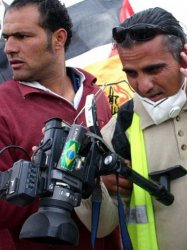
5 Caméras Brisées (2011)
, 1h34Origine Israel
Genres Drame, Guerre, Documentaire, Policier
Thèmes Afrique post-coloniale, Film traitant du cinéma, Religion, Documentaire sur le monde des affaires, Documentaire sur le cinéma, Documentaire sur le droit, Documentaire sur la guerre, Documentaire historique, Documentaire sur une personnalité, Documentaire sur la politique, Documentaire sur la religion, Politique, Religion juive, Documentaire sur les films
Note78%





Lorsque son quatrième fils naît en 2005, Emad Burnat, un cameraman palestinien autodidacte, achète sa première caméra. Au même moment, dans son village de Bil'in, une barrière de séparation est construite et les villageois commencent à résister.
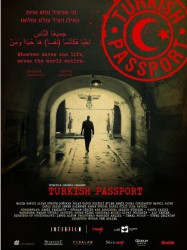
Turkish Passport (2011)
, 1h31Genres Drame, Documentaire, Historique
Thèmes Le racisme, Religion, Documentaire sur la discrimination, Documentaire sur le droit, Documentaire sur la guerre, Documentaire historique, Documentaire sur une personnalité, Documentaire sur la politique, Documentaire sur la religion, Politique, Religion juive, Documentaire sur la Seconde Guerre mondiale
Note79%





Turkish Passport tells the story of diplomats posted to Turkish embassies and consulates in several European countries, who saved numerous Jews during the Second World War. Whether they pulled them out of Nazi concentration camps or took them off the trains that were taking them to the camps, the diplomats, in the end, ensured that the Jews who were Turkish citizens could return to Turkey and thus be saved. Based on the testimonies of witnesses who traveled to Istanbul to find safety, Turkish Passport also uses written historical documents and archive footage to tell this story of rescue and bring to light the events of the time.
[...]Voir plus...
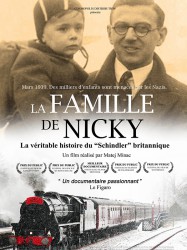
La Famille de Nicky (2011)
, 1h36Réalisé par Matej Mináč
Genres Drame, Documentaire
Thèmes L'immigration, Le racisme, Religion, Documentaire sur la discrimination, Documentaire sur le droit, Documentaire sur la guerre, Documentaire historique, Documentaire sur une personnalité, Documentaire sur la religion, Politique, Religion juive, Documentaire sur la Seconde Guerre mondiale
Acteurs Klara Issova
Note80%





"La famille de Nicky" est l'histoire extraordinaire de Nicholas Winton, surnommé le Schnindler britannique, qui avant le début de la seconde guerre mondiale, entre mars et août 1939, a sauvé 669 enfants tchèques et slovaques, pour la plupart juifs, du génocide nazi. Le film mêle fiction, documents d'archives inédits, et témoignages émouvants des protagonistes de cette histoire, parmi lesquels Nicholas Winton en personne et Joe Schlesinger, journaliste à la CBC et narrateur du film. La "famille" de Nicholas Winton compte aujourd'hui plus de 5 000 personnes dans le monde entier, qui lui doivent la vie.

Anne Frank Remembered (1995)
, 1h57Genres Drame, Documentaire
Thèmes L'enfance, Le racisme, Religion, Documentaire sur la discrimination, Documentaire sur le droit, Documentaire sur la guerre, Documentaire historique, Documentaire sur une personnalité, Documentaire sur la religion, Politique, Religion juive, Documentaire sur la Seconde Guerre mondiale
Acteurs Kenneth Branagh, Glenn Close, Joely Richardson
Note80%





 , 1h31
, 1h31Réalisé par Errol Morris
Origine Etats-Unis
Genres Drame, Documentaire
Thèmes La prison, Le racisme, Religion, Documentaire sur la discrimination, Documentaire sur le droit, Documentaire sur la guerre, Documentaire historique, Documentaire sur une personnalité, Documentaire sur la religion, Politique, La peine de mort, Religion juive, Documentaire sur la Seconde Guerre mondiale, Documentaire sur la police, Négationnisme
Acteurs Errol Morris
Note74%





Ce documentaire traite de Fred A. Leuchter Jr. qui a travaillé dans le domaine des techniques d'exécution, puis témoigné en faveur du négationniste Ernst Zündel lors de son procès en 1988, avant de voir ses qualifications et titres démentis et de perdre son emploi.
 , 1h25
, 1h25Genres Drame, Documentaire
Thèmes La famille, Le racisme, Religion, Documentaire sur la discrimination, Documentaire sur le droit, Documentaire sur la guerre, Documentaire historique, Documentaire sur une personnalité, Documentaire sur la religion, Politique, Religion juive, Documentaire sur la Seconde Guerre mondiale
Note72%





Malte's sister Barbel is shown defending her father and insisting that he could not have known the full truth about Auschwitz, that he tried to resist or subvert the Nazi's most inhumane policies, and that the victims of Auschwitz should be thought of as casualties of war. Malte also includes testimony from a member of a Jewish family in Slovakia whose house was expropriated by the Nazis in the early 1940s.

Genocide (1982)
, 1h30Origine Etats-Unis
Genres Drame, Guerre, Documentaire, Historique
Thèmes Le racisme, Religion, Documentaire sur la discrimination, Documentaire sur le droit, Documentaire sur la guerre, Documentaire historique, Documentaire sur une personnalité, Documentaire sur la religion, Politique, Religion juive, Documentaire sur la Seconde Guerre mondiale
Acteurs Elizabeth Taylor, Orson Welles
Note72%






Les Derniers jours (1998)
, 1h27Réalisé par James Moll
Genres Drame, Guerre, Documentaire, Historique
Thèmes Le racisme, Religion, Documentaire sur la discrimination, Documentaire sur le droit, Documentaire sur la guerre, Documentaire historique, Documentaire sur une personnalité, Documentaire sur la religion, Politique, Religion juive, Documentaire sur la Seconde Guerre mondiale
Note78%





Le documentaire relate l'histoire de cinq juifs hongrois durant l'holocauste, en s'intéressant notamment à la vie dans les camps de concentration et au désir de vivre des prisonniers.
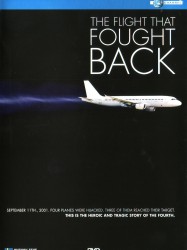
The Flight That Fought Back (2005)
, 1h30Origine Etats-Unis
Genres Drame, Documentaire
Thèmes Les attentats du 11 septembre 2001, Religion, Le terrorisme, Transport, Aviation, Documentaire sur le droit, Documentaire sur la guerre, Documentaire historique, Documentaire sur la politique, Documentaire sur la religion, Documentaire sur les technologies, Documentaire sur le terrorisme, Politique, Religion musulmane, Film catastrophe, Film de catastrophe aérienne, Détournement d'avion
Acteurs Greg Benson, Pej Vahdat
Note73%





 Connexion
Connexion
